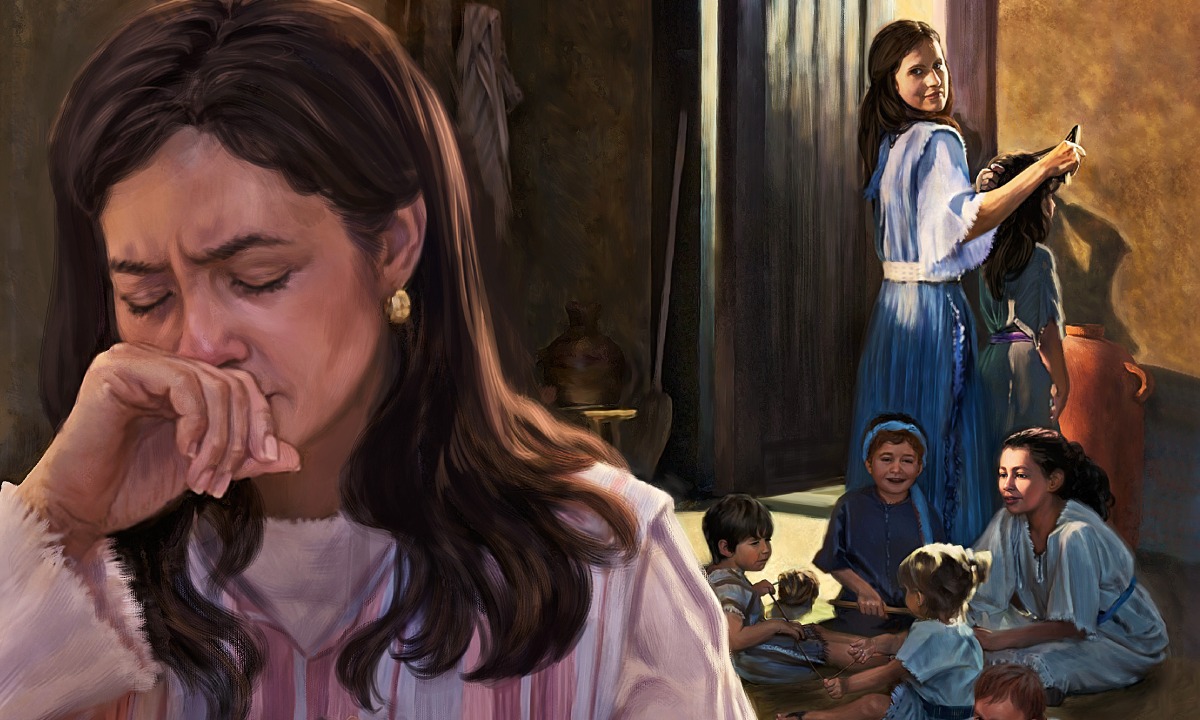As the book of 1 Samuel opens, Israel is a loose collection of tribes sometimes bitterly divided as portrayed in the book of Judges, and oppressed by the Philistines. The book charts the development of Israel from this segmentary tribal society to a centralised, monarchical state. As with the Judges, a central question of this book concerns who will represent Israel in its military struggle, who will maintain the law, who will judge Israel? “First Samuel is about the development, under God’s providence, of a tribal brotherhood into a state. It is a work of political theology” (Murphy, 2-3). Thus the story of Hannah, and of Samuel’s birth must be understood not simply in terms of the psychological aspects of Hannah’s situation and action, but primarily in terms of the divine sovereignty that leads Israel. Hannah is not simply a powerless woman whose prayer is an expression of personal catharsis, which in this case results in blessing—although all this may be true (see Evans, 26-27). Rather, as Murphy also insists,
What Hannah wants and achieves is not psychological closure but open converse with the one God. The heart of the drama in this episode is interior, within the heart that Hannah opens to God the life-giver. … In this encounter, Hannah is given the social role for which she asks from God (8).
Hannah is caught up into what God is up to, and her desire for a son, into his purpose for Israel.
Shiloh at this time is not a capital city—for Israel is not yet a centralised entity—but it has become an important religious and political centre within Israel’s life. As such, Eli, introduced as sitting on a chair (a throne?) in the temple doorway, represents both political and clerical authority, “at the apex of the network of local judges and assemblies” (Murphy, 12). Over against this institutional and hierarchical power is the silent heart-cry of a powerless woman whose prayer has the character of “making a deal” with God.
Prayer remains a mystery, even to those well-practised in the art. It would be wrong to take this passage as a pattern for prayer in the expectation that one could manipulate God and so gain what one desires. Prayer cannot be reduced to “making a deal with God.” Hannah’s prayer is novel; she is not following a liturgical formula or pattern of prayer. It is presented as a vow that she makes to God, a vow that she takes with utmost seriousness. Her prayer is answered and she gets her heart’s desire—but only to give it up again in an act of self-sacrifice that perhaps is not only reminiscent of Abraham offering Isaac, but greater: at least Abraham got to take his son home. Hannah’s act of handing little Samuel over to Eli’s care at Shiloh almost beggars belief. Her prayer is indeed heartfelt, powerful and effective—but also costly in the deepest and most personal sense. Her act is witness that we are not owners of our children however much we desire and love them, and in fact, we might learn from Hannah that an essential aspect of our parenting is learning how to entrust the lives and destinies of our children into the care of the sovereign God from whom they have come.
Prayer, then, has the character of encounter with God in which we truly pour out our hearts to God, but also find ourselves engaged in and drawn into the mystery of his providential dealings not only with ourselves, but with the broader circumstances of our people and nation. In prayer we find that not only are we actors but acted upon; we must learn to speak of prayer using the passive voice. Here, in the genuine freedom in which we pray, we are grasped by a grace greater than ourselves, co-opted into activity broader than our own lives, and made participants in what God is doing in ways that call for costly self-giving that will mark our lives forever. Prayer, then, is not for the faint-hearted or those seeking to make a (selfish) deal with God. And even as I write these words, I find I am challenged concerning why it is prayer is so superficial and sporadic in my life: do I really want to encounter this God who demands my all? Do I really dare to pray if this is what prayer is and does?
I will give Murphy the final word:
In this episode, which introduces the overall theme of Regum [i.e. the four books of Samuel and Kings], the author goes to lengths to show the priority of the personal over the political, by contrasting Hannah’s interior cries for help and Eli’s narrow-sighted public gaze. The insistence of church fathers like Clement, Origen, and Chrysostom on inward faith is rooted as much in the Old Covenant as in the New. Literally and physically, as well as spiritually, this inward root was the womb of Samuel. … Hannah is a pioneer, leading the religious spirit of her times into new territory. In the new political culture that has begun to appear by the end of the book, not only prayer but the action of God occurs silently and in a hidden manner. … A novel conception of divine guidance appears, and one that fits a political theology. From henceforth, God’s action in history is largely, though not solely, presented as providential, working in cooperation with nature and human freedom, rather than in the overt supernatural, interruptions of nature that we call the miraculous. … The Spirit is staking his ground in the privacy of the hearts of men and women (15-16).
 Read 1 Samuel 1
Read 1 Samuel 1